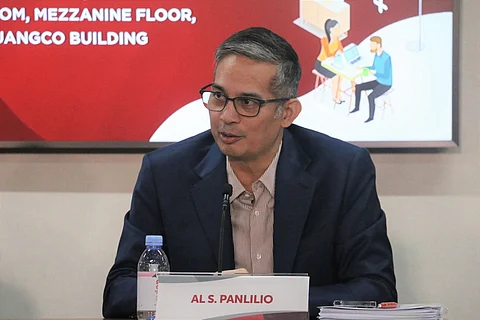
- NEWS
- the EDIT
- COMMENTARY
- BUSINESS
- LIFE
- SHOW
- ACTION
- GLOBAL GOALS
- SNAPS
- DYARYO TIRADA
- MORE

A week after the Senate, heeding the Supreme Court’s voiding of the landmark impeachment case against Vice President, archived the articles of impeachment filed against Duterte, the influential business organization, Management Association of the Philippines (MAP), broke its silence to express hope that the High Court would remain steadfast in defending the Constitution.
Headed by its president, Al Panlilio, the MAP questioned the term “deemed initiated” stated in the SC decision, stating that it is not written in the pages of the Philippine Constitution.
“The Court treated the first three complaints as ‘deemed dismissed,’ triggering the one-year bar for the initiation of the next impeachment. The Court, in effect, treated the first three complaints (counted as one) as “deemed initiated” as well. How can there be a succeeding impeachment initiation to bar if the first has not even been initiated?” the group said in a statement on Friday.
The MAP stressed that deeming effect rests on no Constitutional text because whenever the charter desires that legal effect, it states so expressly, such as on: who are “deemed natural-born citizens” (Article IV, Section 2); who are “deemed to have renounced citizenship” (Article IV, Section 4); “deemed re-enacted” budget (Article VI, Section 25[7]); “deemed certified” special election bill (Article VII, Section 10); “deemed submitted for decision” (Article VIII, Section 15[2]; Article IX, Section 7); ”deemed lifted” freeze order (Article XVIII, Section 26[3]).
“If the framers of the Constitution intended that inaction by the House shall make an impeachment ‘deemed initiated’, it would have been so indicated, like the rest of the provisions above stated.
1-year bar untriggered
Further, the MAP stressed that the one-year bar was not triggered.
“The Court in its decision said that complaints not properly endorsed by a member of the House within a reasonable period, even if dismissed, does not trigger the one-year bar. Yet in the same breath, the Court deems inaction by the House as a dismissal that triggers the one-year bar. This, we submit, stands in tension with the Court’s reasoning: in both cases, the House did not act, and yet there are different legal effects,” the MAP stressed.
Also, the MAP emphasized that the venue for due process is specific, explaining that impeachment is neither a criminal nor an administrative proceeding.
“It is a sui generis process for which the Constitution provides specific venues for due process: in the Committee on Justice for the first mode of impeachment (by verified complaint endorsed by a member of the House); or at the Senate Trial for the second mode (Impeachment by direct resolution transmitted to the Senate),” it said.
Due process prevented
Furthermore, the group stated that the Senate, by stopping the impeachment initiated through the second mode, and the Court, by its decision in this case as it stands, unfortunately, prevented due process from happening.
“Impeachment is to Protect the People. The very title of Article XI, “Accountability of Public Officers”, makes clear that the impeachment process exists to serve the public. It is not to shield a government official from the rigors of defending himself or herself, but to safeguard the people’s right to demand accountability from those who wield authority supposedly on their behalf,” according to the group.
The MAP was firm in saying that the decision of the Court, as it stands, sends a dangerous signal throughout the bureaucracy that abuse of power and corruption carry no consequence.
